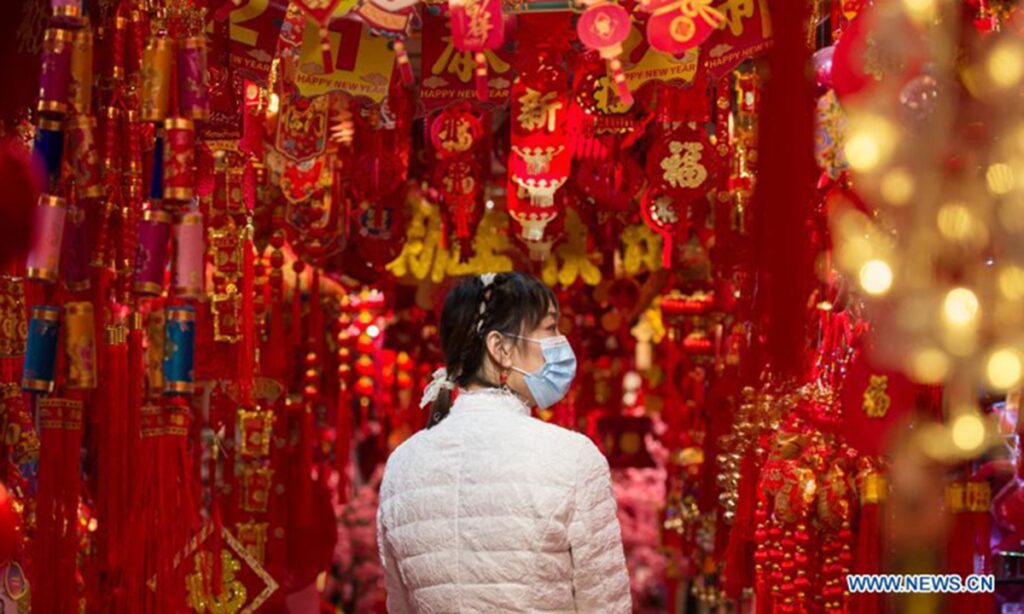China’s anti-epidemic efforts achieved a phased victory in the run-up to China’s most important festival, with holiday spending levels set to exceed expectations.
In a sign of authorities bringing the latest winter epidemic outbreak under control, China has seen first-tier cities – Beijing and Shanghai – as well as most COVID-19 affected regions report zero new local cases over the past few days. The latest development comes as a remarkable victory after more than 2,000 local cases were reported in January in the latest wave of new infections.
In the meantime, China has started inoculating some key groups with COVID-19 vaccines across the country, which is expected to offer enchanted protection for high-risk groups. As of February 3, China had administered over 31.23 million shots of COVID-19 vaccines, a spokesperson of the National Health Commission said at a recent press conference.
All anti-epidemic efforts and achievements have boosted public confidence despite the lingering risk of epidemic, which will serve as a shot in the arm for the consumption market during the Spring Festival holiday.
Under the current circumstances, although there may be still risks of a resurgence of the COVID-19 epidemic and anti-epidemic restrictions on holiday travels have been put in place, it seems unwarranted for any concern as to whether Chinese consumers’ holiday spending will be as robust as expected.
The spending spree before the Spring Festival these days may have already offered some clues about the holiday spending prospects.
As of Monday, the pre-sale box office takings of Spring Festival blockbusters already exceeded 570 million yuan ($88 million), while consumers across the country have rushed to snap up everything from gold jewelry and distilled spirits to electronics and all kinds of new year gifts.
While demand for travel-related spending may take a hit from a “stay in place” trend, it won’t change China’s economic fundamentals in terms of either consumption or manufacturing activities. On the one hand, China’s manufacturing sector may be the least affected by the holiday break, while potentially creating new opportunities for local catering, retailing and entertainment sectors across first- and second-tier cities.
Of course, expectations will depend on the actual control of the epidemic. Consumption and business operations can only be guaranteed when the country could do a good job in epidemic prevention on the whole.
People buy decorations for the upcoming Spring Festival at a market in Xi’an, Northwest China’s Shaanxi Province. Photo: Xinhua




